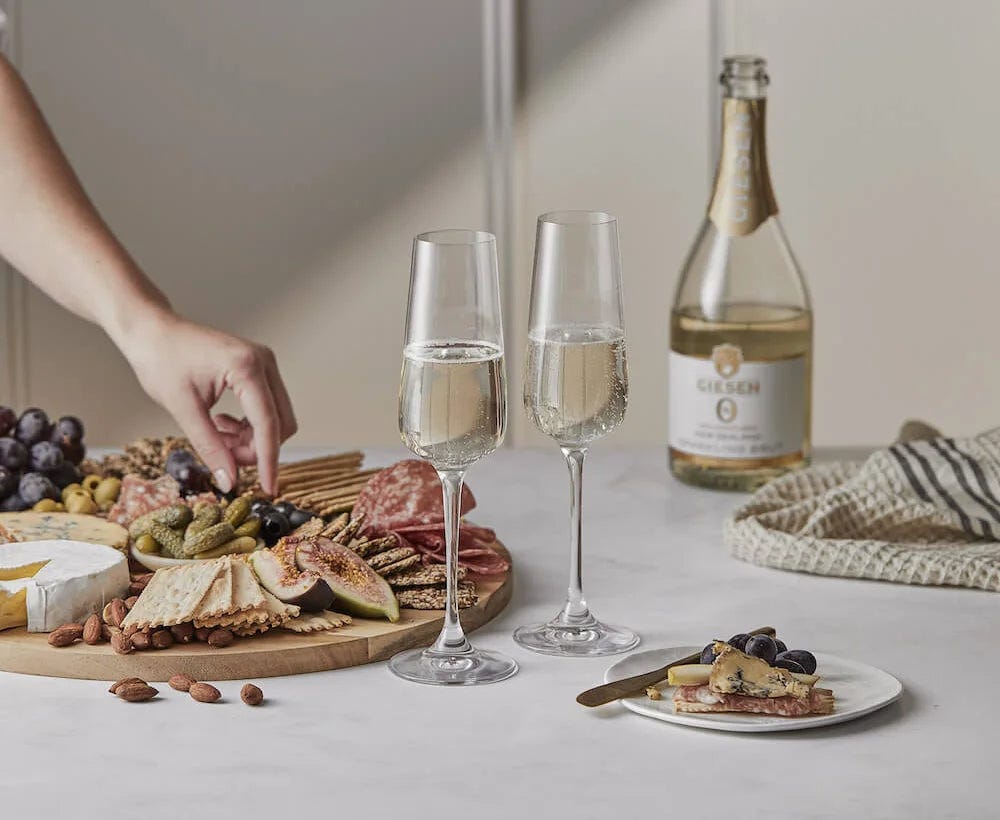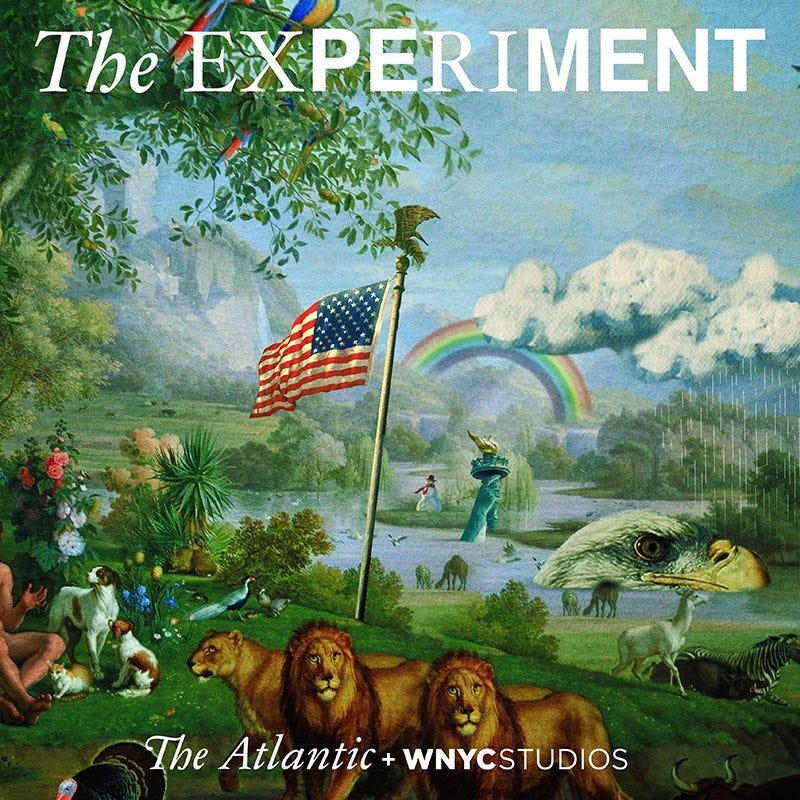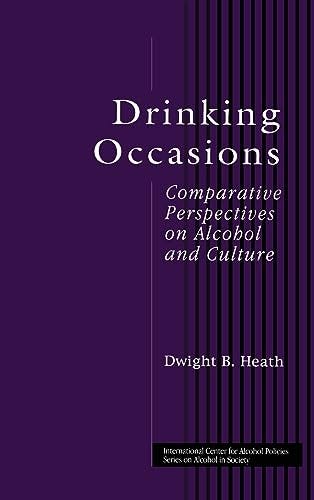The Weekend Pour: Reasons to Drink
Every Friday, bringing you a book, podcast, and article that I'm reading or listening to with a drink in hand.

Welcome to The Weekend Pour!
I hope you had a great Thanksgiving. Many of you celebrated the holiday with a few drinks. It’s customary, of course, proving what anthropologist Clifford Geertz once said of cultural practices, “people have reasons.” Why we drink—or don’t drink—connects to who we are, what we value, and the stories we tell ourselves. Drinking is more than what's in the glass; it’s tied to rituals, relationships, and culture.
Geertz called this approach “thick description,” a term originally coined by philosopher Gilbert Ryle. It’s a way of looking at human behavior that digs into the meanings behind our actions—the why of what we do—and how those meanings are shaped by culture. Drinking a toast at a wedding or cracking open a beer after a long day might seem like simple, isolated acts, but they’re steeped in history, emotion, and symbolism.
You might be surprised to hear this from a mindful drinking advocate, but I don’t care whether you drink alcohol or not. What matters to me is understanding why we drink and the potential outcomes. Exploring those reasons reveals a lot about ourselves and the world we live in. This week, I’ve been diving into those reasons with a book, an article, and a podcast—all while enjoying a delicious non-alcoholic bubbly.
The Drink: Giesen 0% Non-Alcoholic Sparkling Brut
This was one of the bubblies I served at Thanksgiving. It’s delicious, citrus-forward (think lemon and grapefruit), tangy, and paired perfectly with everything from the beet salad to green beans. Anything you’d squeeze a lemon on, Giesen’s 0% alcohol Sparkling Brut complemented well. Outside of Thanksgiving, I’d drink this with briny oysters, like the ones in the nearby Chesapeake Bay (I’m writing from Washington, D.C.).
Giesen produces wine from Marlborough, New Zealand, in the top of the South Island, offering both alcoholic and non-alcoholic varieties. A great feature of Giesen’s non-alcoholic wines is that they’re entirely alcohol-free, making them accessible to those with religious objections or a strong aversion to alcohol. It’s a wonderful way to make any celebration––whether Thanksgiving or New Year’s Eve––more inclusive.
Get Giesen wines from my friends at The Zero Proof for 15% off with this promo code: POSITIVEDAMAGE15.
The Article: Pandemic-era increase in alcohol use persists (Keck Medicine of USC, November 11, 2024)
This article dives into the ongoing impact of the pandemic on alcohol use, showing how drinking habits that spiked during COVID-19 have more or less remained at the same levels. Drawing on data from the National Health Interview Survey, one of the largest health surveys in the U.S., Keck Medicine of USC examined post-pandemic alcohol use in a study published in the Annals of Internal Medicine.
It’s not just a blip; it’s a shift that’s stuck with us. In 2020, we drank about 20% more than just two years before for heavy alcohol use and 4% for all alcohol use.The stress, isolation, and uncertainty of the pandemic led many to turn to alcohol for comfort or escape, and even as the world has opened back up, those patterns haven't simply disappeared. It’s fascinating to see how something we often consider a temporary response can become a long-term habit, altering social behaviors and cultural norms in the process.
For me, it’s a reminder that when we talk about alcohol consumption, it’s not just a personal story—it’s deeply tied to broader experiences, collective stress, and shared moments in history.
The Podcast: The Experiment Podcast: America Has a Drinking Problem
In this episode, host Sean Rameswaram takes a critical look at America’s drinking culture with the help of guest, Julia Longoria. They examine both the individual reasons we drink and the broader cultural narratives that underpin those choices. Drinking isn’t just something we do—it’s something we’re taught to do, often unconsciously, through advertising, media, and social norms. (Hello, Cheers fan here!)
It also delves into the historical and cultural reasons Americans drink, including why we landed on Plymouth Rock out of desperation for beer. Of particular interest to me was how they examine the 1830s, one of the drunkest times in American history. They tie this phenomenon to anomie, a sociological term from Émile Durkheim. Anomie refers to a state of social instability resulting from a breakdown of shared values, standards, or purpose within a society or community. It was a time of “breakneck change,” says Longoria:
You had more people living in total isolation than at any point before or since. You had—in cities, you know, the population was, like, doubling every 10 or 15 years. You had industrialization leading to a huge mismatch between jobs and skills, which sounds actually sort of familiar to what we’re going through now.
An amazing insight into how social instability may be partly to blame for our current drinking patterns that are mirroring the Civil War in the amount drank, according to the NIAAA.
The Book: Drinking Occasions: Comparative Perspectives on Alcohol and Culture by Dwight B. Heath
Dwight Heath’s book is a deep dive into the role of drinking across different cultures, offering a comparative perspective rooted in anthropology. It’s easy to think of alcohol as a universal experience, but Heath shows that the reasons people drink—and the ways they do it—vary greatly depending on cultural context. In some societies, alcohol is a minor part of daily life, while in others, it’s a central element of social gatherings. These differences reveal a lot about what people value and how they build connections.
In his introduction, Heath suggests that there are two main reasons to study alcohol at a societal level. First, it is intrinsically interesting to understand how societies regulate themselves and adapt to change, and how these processes impact individuals and relationships. Second, these dynamics shape our outlook on everything—from moral choices to what foods and beverages are considered acceptable. This context forms the backdrop against which societies face the trials of civilization. Heath argues that there’s no reason to believe that the way we drink and what it means will be the same across cultures.
He concludes that whether one drinks or doesn’t, each individual or group should be free to drink according to their conscience—a reflection of the “vivid panorama of human history.” Appropriately, Heath’s book serves as its own panoramic lens, offering a sweeping exploration of the intricate relationship between alcohol and culture across time and place.
Have a great weekend and don’t forget to let me know what you’re listening to and reading!
Thank you to Oar Health for your important work and sponsorship of Positive Damage! Learn more about how Oar Health can help you drink less or quit here.









Fascinating Derek! “understanding why we drink and the potential outcomes. Exploring those reasons reveals a lot about ourselves and the world we live in.” -this statement is so true - I’m bookmarking this post for the books and podcast so I can read it all! The psychology of societal drinking is fascinating as is the marketing behind how we as a society are ‘conditioned’ that alcohol ‘is’ the center of all events- good or bad. I’m also curious on the read on other cultures connection with alcohol.
My Thanksgiving NA was a Kin Euphoric and Oddbird Addiction wine.